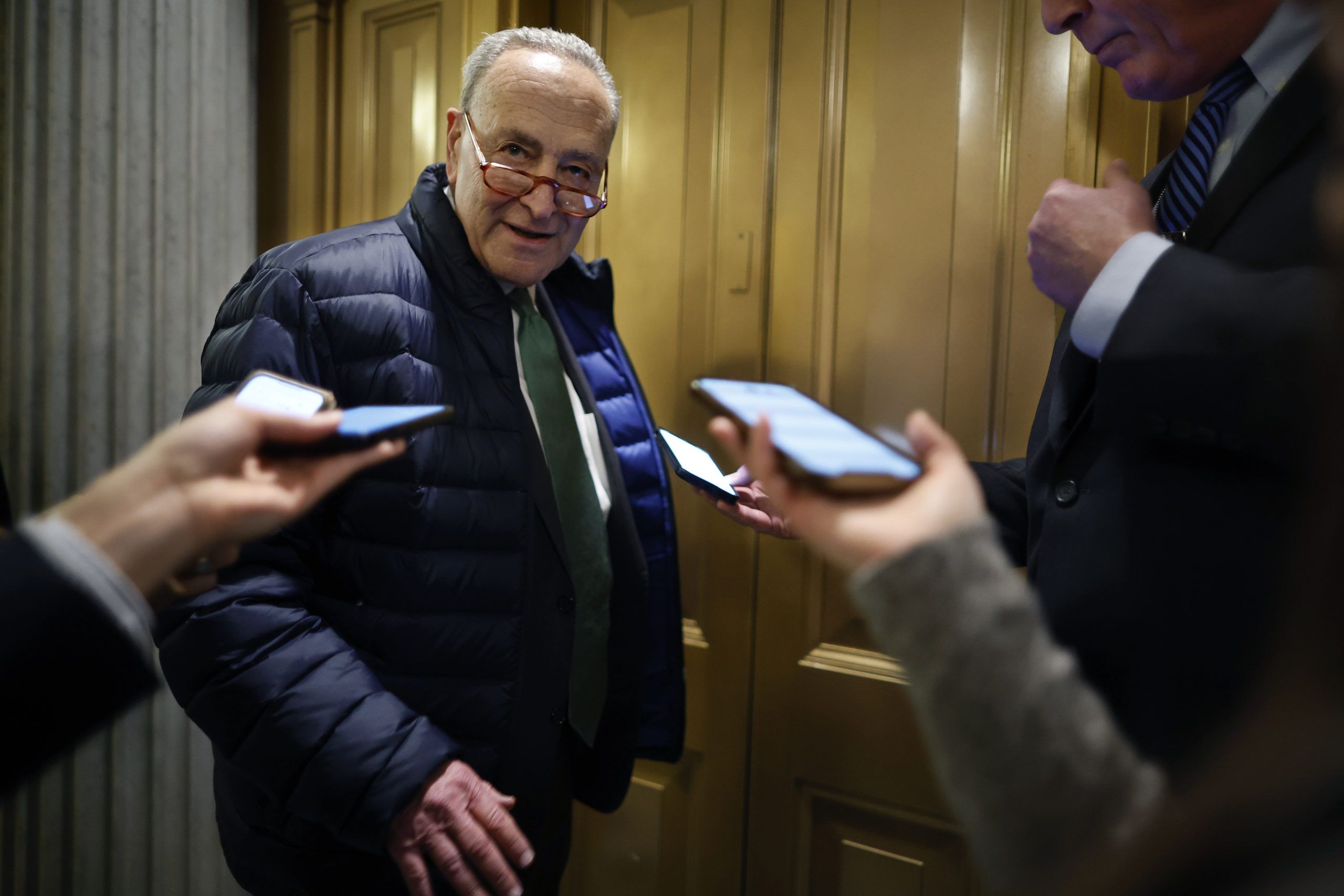Senate Majority Leader Chuck Schumer (D-N.Y.) was questioned about the length of the omnibus spending bill.
A reporter asked Schumer on Tuesday, “How is it a functional process to drop a 4,100-page bill this morning and expect a vote on it tomorrow?”
Schumer replied, “The bill has been carefully worked on by the Appropriations Committee for a very, very long time.”
He explained, “Most of the provisions were well known weeks and weeks in advance. Getting this bill done for the American people, which really matters, is the most important thing.”
Watch Schumer’s remarks below:
Reporter: "How is it to functional process to drop a 4,100 page bill this morning and expect a vote on it tomorrow?"
— Greg Price (@greg_price11) December 20, 2022
Schumer: "The bill has been carefully worked on [and] most of the provisions were well known weeks and weeks in advance." pic.twitter.com/PLBO3JOdig
Sen. Rand Paul (R-Ky.) took to Twitter to point out the length of the bill.
“I wonder how long it would take the clerk to read this …” Paul tweeted.
House Minority Leader Kevin McCarthy (R-Calif.) has plans to campaign against the $1.7 trillion bill that Senate Republicans negotiated with Democrats, Fox News reported.
A dozen Senate Republicans spoke with Axios, saying they are not taking McCarthy’s threat seriously.
“He’s focused on being speaker, and if I were in his shoes, that’s what I would be focused on, trying to get enough votes. But I don’t think that intimidates anyone,” Sen. Richard Shelby (R-Ala.), the vice chair of the Senate Appropriations Committee and the top negotiator on the omnibus, said.
Sen. Mitt Romney (R-Utah) told the outlet, “We’re enduring the silly season of the campaign.”
He added, “[For] most of us, that’s over after you get elected, but he’s running for speaker of the House, so the silliness is still evident.”
Axios noted more than 20 Republican senators voted Tuesday night to begin debate on the bill.
Included in the package are $858 billion in funding for the military and more than $772 billion in funding for domestic programs.
Additionally, it includes roughly $45 billion in funding for Ukraine and close to $40 billion in disaster aid.
























